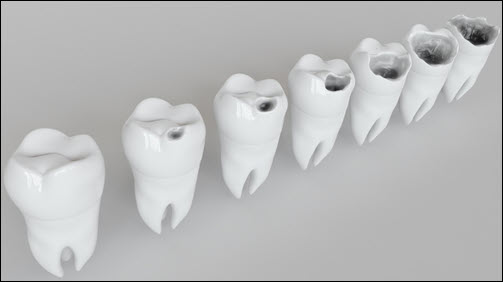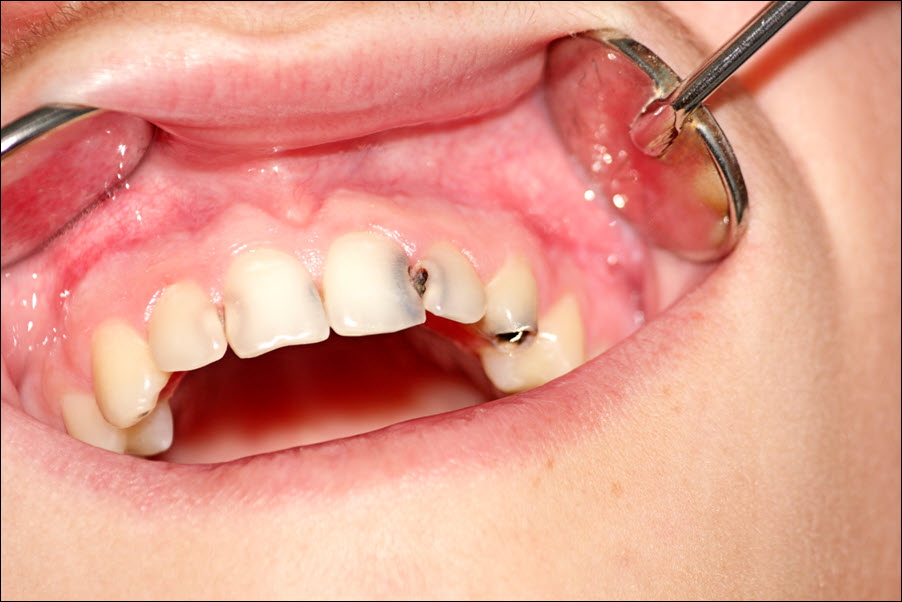Preventing Cavities Before They Start
Preventing cavities protects your teeth and strengthens enamel. Cavities form when plaque and bacteria produce acids that erode tooth enamel. Poor brushing, sugary foods, and dry mouth increase cavity risk. Early signs of cavities include sensitivity, discoloration, and tooth pain. Proper oral hygiene and a balanced diet reduce plaque buildup and acid exposure. Regular dental checkups detect early decay and prevent further damage. Fluoride treatments strengthen enamel and improve cavity resistance. Daily care and professional cleanings reduce plaque and improve tooth durability. Understanding how to prevent cavities strengthens dental health and improves smile confidence. Let’s explore how to keep your teeth cavity-free.
Brush Twice a Day with Fluoride Toothpaste
Brushing twice a day removes plaque and strengthens enamel. Use a soft-bristled toothbrush and fluoride toothpaste. Hold the brush at a 45-degree angle to the gumline. Use small, circular motions to clean all tooth surfaces. Brush the front, back, and chewing surfaces of each tooth. Brush for at least two minutes to remove plaque effectively. Clean your tongue to remove bacteria and improve breath freshness. Replace your toothbrush every three months or when the bristles fray. Electric toothbrushes improve plaque removal and increase brushing consistency. Fluoride toothpaste strengthens enamel and increases resistance to acid and decay. Proper brushing improves enamel strength and protects against cavities.
Floss Daily to Remove Plaque and Food Particles
Flossing removes plaque and food particles from between teeth and under the gumline. Use about 18 inches of floss, wrapping it around your middle fingers. Gently slide the floss between teeth using a back-and-forth motion. Curve the floss into a “C” shape around each tooth. Clean under the gumline without snapping the floss. Flossing prevents plaque buildup and reduces gum inflammation. Water flossers provide an alternative for hard-to-reach areas. Flossing once a day reduces the risk of cavities and gum disease. Clean gumlines increase tooth stability and reduce sensitivity. Stronger gums improve tooth strength and bite comfort. Proper flossing reduces plaque and protects against cavities.
Use Fluoride Treatments to Strengthen Enamel
Fluoride strengthens enamel and protects against cavities. Brushing with fluoride toothpaste increases enamel resistance to acid and bacterial damage. Professional fluoride treatments provide deeper protection and strengthen enamel. Fluoride mouthwash reduces plaque and improves enamel durability. Drinking fluoridated water increases daily protection and strengthens tooth surfaces. Fluoride restores lost minerals and increases cavity resistance. Dentists recommend fluoride toothpaste with at least 1,000 ppm of fluoride. Proper fluoride exposure improves enamel strength and reduces sensitivity. Fluoride treatments create a protective barrier against acid and plaque. Stronger enamel improves chewing comfort and bite strength. Regular fluoride use strengthens teeth and reduces cavity risk.
Avoid Sugary and Acidic Foods and Drinks
 Sugary and acidic foods weaken enamel and increase plaque formation. Bacteria feed on sugar, producing acids that erode enamel. Soda, candy, and fruit juices increase acid exposure and plaque buildup. Sticky and chewy snacks increase cavity risk and weaken enamel. Avoiding sugary drinks reduces enamel erosion and bacterial growth. Rinse with water after consuming sugary or acidic foods. Eating a balanced diet improves gum health and tooth strength. Dairy products and leafy greens provide calcium and strengthen enamel. Fiber-rich fruits and vegetables increase saliva flow and clean tooth surfaces. Avoiding harmful foods protects enamel and improves overall dental health.
Sugary and acidic foods weaken enamel and increase plaque formation. Bacteria feed on sugar, producing acids that erode enamel. Soda, candy, and fruit juices increase acid exposure and plaque buildup. Sticky and chewy snacks increase cavity risk and weaken enamel. Avoiding sugary drinks reduces enamel erosion and bacterial growth. Rinse with water after consuming sugary or acidic foods. Eating a balanced diet improves gum health and tooth strength. Dairy products and leafy greens provide calcium and strengthen enamel. Fiber-rich fruits and vegetables increase saliva flow and clean tooth surfaces. Avoiding harmful foods protects enamel and improves overall dental health.
Drink Plenty of Water to Wash Away Plaque
Water increases saliva flow and reduces plaque buildup. Saliva washes away food particles and neutralizes acids. Drinking water after meals removes sugar and bacteria from tooth surfaces. Fluoridated water strengthens enamel and reduces cavity risk. Proper hydration reduces dry mouth and increases enamel protection. Dry mouth increases plaque formation and enamel sensitivity. Drinking water improves breath freshness and gum health. Cold water reduces gum inflammation and improves mouth comfort. Better hydration increases saliva production and protects against enamel erosion. Replacing sugary drinks with water reduces plaque and cavity formation. Drinking water improves overall dental strength and comfort.
Chew Sugar-Free Gum to Increase Saliva Production
Chewing sugar-free gum increases saliva flow and protects enamel. Saliva neutralizes acids and washes away plaque-causing bacteria. Xylitol in sugar-free gum reduces bacterial activity and strengthens enamel. Chewing gum after meals improves saliva production and tooth protection. Increased saliva flow reduces dry mouth and plaque buildup. Saliva repairs minor enamel damage and increases cavity resistance. Proper chewing improves jaw strength and bite alignment. Sugar-free gum reduces acid exposure and increases enamel strength. Dentists recommend chewing gum with xylitol for added protection. Increased saliva production reduces plaque and strengthens enamel. Chewing gum improves overall dental health and comfort.
Schedule Regular Dental Checkups and Cleanings
Professional cleanings remove plaque and tartar buildup. Plaque hardens into tartar, which increases the risk of cavities. Dentists use ultrasonic tools to clean tartar without damaging enamel. Professional fluoride treatments strengthen enamel and reduce sensitivity. Regular checkups detect early signs of decay and enamel weakness. Early treatment prevents cavities and reduces future dental issues. Dentists monitor bite alignment and adjust fillings to reduce plaque buildup. Scaling and polishing improve tooth surface smoothness and resistance to stains. Clean teeth increase breath freshness and chewing comfort. Professional care improves enamel strength and reduces plaque formation. Regular cleanings protect teeth and improve overall dental health.
Protect Teeth with Dental Sealants
Dental sealants protect chewing surfaces from plaque and acid. Dentists apply a thin plastic coating to the chewing surfaces of molars. Sealants fill deep grooves and create a smooth, protective surface. The process takes about 10 to 15 minutes per tooth. Properly sealed teeth resist plaque buildup and acid erosion. Sealants reduce cavity risk by up to 80%. Professional monitoring maintains sealant strength and surface protection. Sealants protect against acid and bacterial damage in hard-to-clean areas. Stronger chewing surfaces improve bite strength and overall comfort. Dental sealants increase long-term enamel strength and reduce cavity risk. Protected teeth improve smile strength and overall dental health.
Boosting Confidence with a Healthy Smile
Preventing cavities increases smile strength and confidence. Stronger enamel increases chewing comfort and reduces sensitivity. Clean, smooth teeth improve breath freshness and smile appearance. Reduced plaque buildup increases overall mouth comfort. Balanced enamel strength improves bite alignment and chewing efficiency. Protected teeth increase confidence in social and professional settings. Reduced sensitivity increases comfort when eating hot, cold, and sweet foods. Stronger teeth reduce the need for future dental treatments. Better oral health increases overall mouth strength and comfort. A confident smile improves personal and social interactions. Stronger enamel creates a balanced and healthier smile.
Preventing cavities protects enamel and strengthens gum health. Brushing and flossing daily reduce plaque and improve tooth strength. Fluoride treatments increase enamel resistance to acid and bacterial damage. Drinking water increases saliva flow and reduces plaque buildup. Avoiding sugary and acidic foods protects enamel and strengthens tooth surfaces. Professional cleanings remove tartar and improve enamel smoothness. Dental sealants protect molars from plaque and acid erosion. Investing in better oral care strengthens teeth and improves smile confidence. A balanced, healthy smile increases comfort and personal confidence. Stronger teeth improve both dental health and overall comfort.













